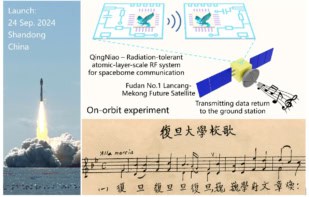
The first astronomical society encompassing all of Africa has been formally launched at a meeting of the International Astronomical Union (IAU) in Cape Town, South Africa. The African Astronomical Society (AfAS) debuted at the Second Middle East-Africa Regional IAU Meeting on 14 April – just three years after the society was first proposed.
The ceremony was attended by astronomers from each of five regions of Africa: Northern, Southern, Eastern, Western and Central. There were also representatives from a sixth region designated as the African Diaspora. This society follows in the wake of the African Physical Society (AfPS), which launched last year.
Organize and connect
The aims of the AfAS are to organize and connect a community of astronomers, and to develop resources for astronomy and astrophysics throughout Africa. The American physicist Hakeem Oluseyi has been elected interim president of the society. Oluseyi is at the Department of Physics and Space Sciences, Florida Institute of Technology and has worked in Africa to promote astronomy.
According to its constitution, the main vision of the society is “to be the voice of the astronomy profession in Africa in order to promote and support research on the continent and to facilitate the use of astronomy in addressing the challenges faced by Africa”.
The AfAS will promote astronomy as a tool for socioeconomic development in Africa and plans to further the study of mathematics and physics at a school level in order to encourage students to pursue careers in astronomy. It will also advocate the production and dissemination of scientific works by African astronomers. To achieve these goals the society will collaborate with institutions like the IAU, AfPS, UNESCO and the US-based National Society of Black Physicists.
‘Outpouring of support’
“The AfAS has received an outpouring of support from astronomical societies, institutions and organizations worldwide,” said Oluseyi who is eager to usher in a new era for astronomy in Africa. “Of course there are still challenges despite the support that we have received,” he added. “One issue is that although computers are ubiquitous across Africa, high-speed Internet is not.” Regarding the popularization of astronomy, “a big challenge is in reaching students and the public in Africa’s rural areas”.
Oluseyi acknowledges that the current global financial scenario could make fundraising difficult. “Our approach is to put together the right people, do the good work, and continuously seek support and cooperation,” he told physicsworld.com. “As an individual, I worked in Africa for many years with several others and we had virtually no support. We have made progress, and we believe that ultimately we will win support and achieve even more.”
The AfAS has six different types of membership categories that extend from student memberships to honorary memberships to memberships for non-professional astronomers that any person interested in astronomy could apply for. As there are already a number of local astronomy groups and societies that exist in Africa, members of such groups have been encouraged to join the society. For example, the Ghana Association of Astronomy (GAOA) has been active since 2009 and some of its members have already joined the AfAS.
Supporting SKA
South Africa is currently one of the nations contending to be the site of the Square Kilometer Array (SKA), which will be a giant network of thousands of radio telescopes. “Supporting Africa’s SKA bid is a primary objective of the society and played a role in its inception” explained Oluseyi. “The impact of Africa’s selection as the host site of the SKA can not be overstated,” he added.
Would Africa not being chosen as the primary site for SKA affect the society in any way? “I’m sure that the AfAS membership and leadership will continue to work as hard as possible to support astronomy research and education in Africa regardless of the SKA outcome,” said Oluseyi. “The one thing that I can assure you, which will probably surprise most people in the Western world, is that the African people are as scientifically literate and talented as any people on Earth. However, the full potential of Africa’s minds is not being tapped. Having the SKA on African soil will raise the visibility of Africa’s many bright scientists and students at home and abroad.”



